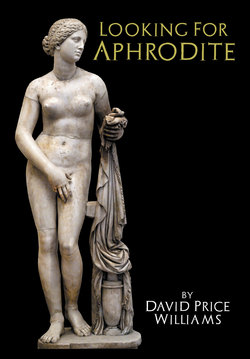Читать книгу Looking for Aphrodite - David Price Williams - Страница 41
На сайте Литреса книга снята с продажи.
Оглавлениеbefore I arrived in Knidos, when it came to the Classical Greeks there was nothing you could tell me about them that I didn’t already know. I knew them through book learning as a priest knows his bible. I had studied Greek since I was thirteen years old, sitting in a hard pitch-pine desk in Form 3A. I’d conjugated the verb λυω in all its moods, and those tricky third declension nouns were my constant companions.
I had gone on to study more and yet more Greek at University, being introduced to Alexandrian Greek and koine Greek, the Greek of the New Testament. I knew everything about the ancient Greeks – Greek language, Greek grammar, Greek syntax, Homeric poems, the philosophy of Aristotle, the plays of Sophocles and Aristophanes, the debating style of Socrates, the botanical observations of Theophrastus and the cynicism of Diogenes. Of particular fascination was Xenophon’s Anabasis, a history of the march through eastern Anatolia to the Black Sea after the Battle of Cunaxa, with that famous tearful moment at the end of Book Four when the ten thousand reach the sea – Thalassa! Thalassa! they cried. Marvellous! Also, R.E. Wytcherley, who wrote the famous book, ‘How the Greeks Built Cities’, was one of my professors, so I knew the architecture, the triglyphs, the metopes, the gymnasia and the Greek political institutions too. Yes, I knew it all. Everything!
I knew it all, that is, until I arrived at Knidos. Here, walking the stepped streets, looking up at the terraces, seeing the mason’s initials on the walls, a bolt mark on a threshold block in the Hellenistic houses on the Island, a worn tread on a stair, or gazing out to sea, across to the Dodecanese, I suddenly became aware that I had missed one crucial, all-important ingredient in my Hellenic education, namely, the people. I had omitted to relate any of the academic elements I had amassed to anything actual, things like men and women, life and death, the marble you walk on, the water you drink, seed time and harvest, in short, everything that makes human existence tangible. I knew the theory, but none, absolutely nothing, of the practice. Although I had become educated it was an artificial world I had studied.
33
